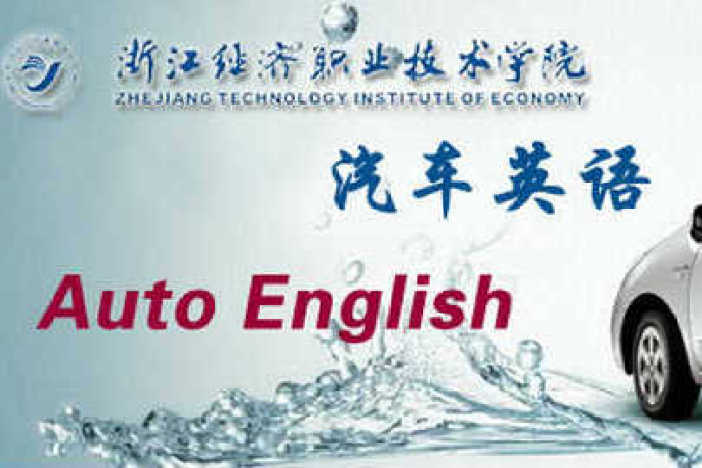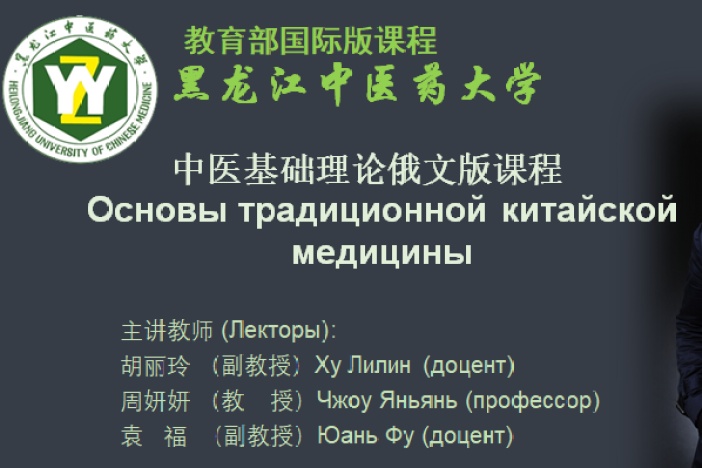收藏
课程目录
第一章 Theory:Understanding fundamental concepts in FLT 第1节 1.1 Views on language
 第一章 Theory:Understanding fundamental concepts in FLT 第1节 1.1 Views on language 1
第一章 Theory:Understanding fundamental concepts in FLT 第1节 1.1 Views on language 1
 第一章 Theory:Understanding fundamental concepts in FLT 第2节 1.2 Views on learning
第一章 Theory:Understanding fundamental concepts in FLT 第2节 1.2 Views on learning
 第一章 Theory:Understanding fundamental concepts in FLT 第2节 1.2 Views on learning 1
第一章 Theory:Understanding fundamental concepts in FLT 第2节 1.2 Views on learning 1
 第一章 Theory:Understanding fundamental concepts in FLT 第3节 1.3 Views on learner
第一章 Theory:Understanding fundamental concepts in FLT 第3节 1.3 Views on learner
 第一章 Theory:Understanding fundamental concepts in FLT 第3节 1.3 Views on learner 1
第一章 Theory:Understanding fundamental concepts in FLT 第3节 1.3 Views on learner 1
 第一章 Theory:Understanding fundamental concepts in FLT 第4节 1.4 Views on teacher
第一章 Theory:Understanding fundamental concepts in FLT 第4节 1.4 Views on teacher
 第一章 Theory:Understanding fundamental concepts in FLT 第4节 1.4 Views on teacher 1
第一章 Theory:Understanding fundamental concepts in FLT 第4节 1.4 Views on teacher 1
 第一章 Theory:Understanding fundamental concepts in FLT 第5节 1.5 Views on materials
第一章 Theory:Understanding fundamental concepts in FLT 第5节 1.5 Views on materials
 第一章 Theory:Understanding fundamental concepts in FLT 第5节 1.5 Views on materials 1
第一章 Theory:Understanding fundamental concepts in FLT 第5节 1.5 Views on materials 1
 第一章 Theory:Understanding fundamental concepts in FLT 第6节 1.6 Views on assessment
第一章 Theory:Understanding fundamental concepts in FLT 第6节 1.6 Views on assessment
 第一章 Theory:Understanding fundamental concepts in FLT 第6节 1.6 Views on assessment 1
第一章 Theory:Understanding fundamental concepts in FLT 第6节 1.6 Views on assessment 1
 第二章 Theory:Understanding key issues in curriculum development and teacher development 第1节 2.1 Understanding English Curriculum Standards
第二章 Theory:Understanding key issues in curriculum development and teacher development 第1节 2.1 Understanding English Curriculum Standards
 第二章 Theory:Understanding key issues in curriculum development and teacher development 第2节 2.2 Understanding Middle School Teachers Professional Standards
第二章 Theory:Understanding key issues in curriculum development and teacher development 第2节 2.2 Understanding Middle School Teachers Professional Standards
 第三章 Theory:Understanding major approaches to FLT 第1节 3.1 Grammar-translation method
第三章 Theory:Understanding major approaches to FLT 第1节 3.1 Grammar-translation method
 第三章 Theory:Understanding major approaches to FLT 第2节 3.2 Direct method
第三章 Theory:Understanding major approaches to FLT 第2节 3.2 Direct method
 第三章 Theory:Understanding major approaches to FLT 第3节 3.3 Audio-lingual method
第三章 Theory:Understanding major approaches to FLT 第3节 3.3 Audio-lingual method
 第三章 Theory:Understanding major approaches to FLT 第4节 3.4 Communicative approach
第三章 Theory:Understanding major approaches to FLT 第4节 3.4 Communicative approach
 第三章 Theory:Understanding major approaches to FLT 第5节 3.5 Task-based approach
第三章 Theory:Understanding major approaches to FLT 第5节 3.5 Task-based approach
 第四章 Performance:Lesson design 第1节 4.1 Design of a lesson plan: materials analysis
第四章 Performance:Lesson design 第1节 4.1 Design of a lesson plan: materials analysis
 第四章 Performance:Lesson design 第2节 4.2 Design of a lesson plan: learner analysis
第四章 Performance:Lesson design 第2节 4.2 Design of a lesson plan: learner analysis
 第四章 Performance:Lesson design 第3节 4.3 Design of a lesson plan: objectives setting
第四章 Performance:Lesson design 第3节 4.3 Design of a lesson plan: objectives setting
 第四章 Performance:Lesson design 第4节 4.4 Design of a lesson plan: teaching focus
第四章 Performance:Lesson design 第4节 4.4 Design of a lesson plan: teaching focus
 第四章 Performance:Lesson design 第5节 4.5 Design of a lesson plan: Methodology
第四章 Performance:Lesson design 第5节 4.5 Design of a lesson plan: Methodology
 第四章 Performance:Lesson design 第6节 4.6 Design of a lesson plan: teaching procedures
第四章 Performance:Lesson design 第6节 4.6 Design of a lesson plan: teaching procedures
 第四章 Performance:Lesson design 第7节 4.7 Design of class types: listening class
第四章 Performance:Lesson design 第7节 4.7 Design of class types: listening class
 第四章 Performance:Lesson design 第8节 4.8 Design of class types: speaking class
第四章 Performance:Lesson design 第8节 4.8 Design of class types: speaking class
 第四章 Performance:Lesson design 第9节 4.9 Design of class types: reading class
第四章 Performance:Lesson design 第9节 4.9 Design of class types: reading class
 第四章 Performance:Lesson design 第10节 4.10 Design of class types: writing class
第四章 Performance:Lesson design 第10节 4.10 Design of class types: writing class
 第四章 Performance:Lesson design 第11节 4.11 Design of class types: grammar class
第四章 Performance:Lesson design 第11节 4.11 Design of class types: grammar class
 第四章 Performance:Lesson design 第12节 4.12 Design of class types: vocabulary class
第四章 Performance:Lesson design 第12节 4.12 Design of class types: vocabulary class
 第五章 Performance:Classroom teaching 第1节 5.1 Presenting instructions
第五章 Performance:Classroom teaching 第1节 5.1 Presenting instructions
 第五章 Performance:Classroom teaching 第2节 5.2 Organizing activities
第五章 Performance:Classroom teaching 第2节 5.2 Organizing activities
 第五章 Performance:Classroom teaching 第3节 5.3 Questioning
第五章 Performance:Classroom teaching 第3节 5.3 Questioning
 第五章 Performance:Classroom teaching 第4节 5.4 Providing feedback
第五章 Performance:Classroom teaching 第4节 5.4 Providing feedback
 第五章 Performance:Classroom teaching 第5节 5.5 Dealing with errors
第五章 Performance:Classroom teaching 第5节 5.5 Dealing with errors
 第五章 Performance:Classroom teaching 第6节 5.6 Using blackboard
第五章 Performance:Classroom teaching 第6节 5.6 Using blackboard
 第五章 Performance:Classroom teaching 第7节 5.7 Keeping a disciplined classroom
第五章 Performance:Classroom teaching 第7节 5.7 Keeping a disciplined classroom
 第五章 Performance:Classroom teaching 第8节 5.8 Teaching large classes
第五章 Performance:Classroom teaching 第8节 5.8 Teaching large classes
 第五章 Performance:Classroom teaching 第9节 5.9 Teaching multi-level classes
第五章 Performance:Classroom teaching 第9节 5.9 Teaching multi-level classes
 第六章 Performance:Teacher observation 第1节 6.1 Observing a lesson
第六章 Performance:Teacher observation 第1节 6.1 Observing a lesson
 第六章 Performance:Teacher observation 第1节 6.1 Observing a lesson 1
第六章 Performance:Teacher observation 第1节 6.1 Observing a lesson 1
 第六章 Performance:Teacher observation 第2节 6.2 Evaluating a lesson
第六章 Performance:Teacher observation 第2节 6.2 Evaluating a lesson
 第六章 Performance:Teacher observation 第2节 6.2 Evaluating a lesson 1
第六章 Performance:Teacher observation 第2节 6.2 Evaluating a lesson 1
 第七章 Performance:Testing and evaluation 第1节 7.1 Assigning homework
第七章 Performance:Testing and evaluation 第1节 7.1 Assigning homework
 第七章 Performance:Testing and evaluation 第2节 7.2 Checking homework
第七章 Performance:Testing and evaluation 第2节 7.2 Checking homework
 第七章 Performance:Testing and evaluation 第3节 7.3 Understanding language testing
第七章 Performance:Testing and evaluation 第3节 7.3 Understanding language testing
 第七章 Performance:Testing and evaluation 第4节 7.4 Writing Test items
第七章 Performance:Testing and evaluation 第4节 7.4 Writing Test items
 第八章 Performance:Micro-lecture 第1节 8.1 Creating micro lectures: definitions and features
第八章 Performance:Micro-lecture 第1节 8.1 Creating micro lectures: definitions and features
 第八章 Performance:Micro-lecture 第2节 8.2 Creating micro lectures: instruction design
第八章 Performance:Micro-lecture 第2节 8.2 Creating micro lectures: instruction design
 第八章 Performance:Micro-lecture 第3节 8.3 Creating micro lectures: technology
第八章 Performance:Micro-lecture 第3节 8.3 Creating micro lectures: technology
 第九章 Research:Thinking about the research areas 第1节 9.1 Types of Research in FLT
第九章 Research:Thinking about the research areas 第1节 9.1 Types of Research in FLT
 第九章 Research:Thinking about the research areas 第1节 9.1 Types of Research in FLT 1
第九章 Research:Thinking about the research areas 第1节 9.1 Types of Research in FLT 1
 第九章 Research:Thinking about the research areas 第2节 9.2 Concepts in research (1
第九章 Research:Thinking about the research areas 第2节 9.2 Concepts in research (1
 第九章 Research:Thinking about the research areas 第2节 9.2 Concepts in research (1 1
第九章 Research:Thinking about the research areas 第2节 9.2 Concepts in research (1 1
 第九章 Research:Thinking about the research areas 第3节 9.3 Concepts in research (2
第九章 Research:Thinking about the research areas 第3节 9.3 Concepts in research (2
 第九章 Research:Thinking about the research areas 第3节 9.3 Concepts in research (2 1
第九章 Research:Thinking about the research areas 第3节 9.3 Concepts in research (2 1
 第九章 Research:Thinking about the research areas 第4节 9.4 Topics for Research
第九章 Research:Thinking about the research areas 第4节 9.4 Topics for Research
 第九章 Research:Thinking about the research areas 第4节 9.4 Topics for Research 1
第九章 Research:Thinking about the research areas 第4节 9.4 Topics for Research 1
 第十章 Research:Thinking about the research methodology 第1节 10.1 Survey: questionnaire
第十章 Research:Thinking about the research methodology 第1节 10.1 Survey: questionnaire
 第十章 Research:Thinking about the research methodology 第1节 10.1 Survey: questionnaire 1
第十章 Research:Thinking about the research methodology 第1节 10.1 Survey: questionnaire 1
 第十章 Research:Thinking about the research methodology 第2节 10.2 Survey: interview
第十章 Research:Thinking about the research methodology 第2节 10.2 Survey: interview
 第十章 Research:Thinking about the research methodology 第2节 10.2 Survey: interview 1
第十章 Research:Thinking about the research methodology 第2节 10.2 Survey: interview 1
 第十章 Research:Thinking about the research methodology 第3节 10.3 Action research
第十章 Research:Thinking about the research methodology 第3节 10.3 Action research
 第十章 Research:Thinking about the research methodology 第3节 10.3 Action research 1
第十章 Research:Thinking about the research methodology 第3节 10.3 Action research 1
 第十章 Research:Thinking about the research methodology 第4节 10.4 Classroom observation
第十章 Research:Thinking about the research methodology 第4节 10.4 Classroom observation
 第十章 Research:Thinking about the research methodology 第4节 10.4 Classroom observation 1
第十章 Research:Thinking about the research methodology 第4节 10.4 Classroom observation 1
 第十章 Research:Thinking about the research methodology 第5节 10.5 Case study
第十章 Research:Thinking about the research methodology 第5节 10.5 Case study
 第十章 Research:Thinking about the research methodology 第5节 10.5 Case study 1
第十章 Research:Thinking about the research methodology 第5节 10.5 Case study 1
 第十章 Research:Thinking about the research methodology 第6节 10.6 Experimental research
第十章 Research:Thinking about the research methodology 第6节 10.6 Experimental research
 第十一章 Research:Thinking about the organization 第1节 11.1 Introduction
第十一章 Research:Thinking about the organization 第1节 11.1 Introduction
 第十一章 Research:Thinking about the organization 第2节 11.2 Literature review
第十一章 Research:Thinking about the organization 第2节 11.2 Literature review
 第十一章 Research:Thinking about the organization 第3节 11.3 Research design
第十一章 Research:Thinking about the organization 第3节 11.3 Research design
 第十一章 Research:Thinking about the organization 第4节 11.4 Data analysis
第十一章 Research:Thinking about the organization 第4节 11.4 Data analysis
 第十一章 Research:Thinking about the organization 第5节 11.5 Conclusion
第十一章 Research:Thinking about the organization 第5节 11.5 Conclusion
 第十一章 Research:Thinking about the organization 第6节 11.6 Abstract
第十一章 Research:Thinking about the organization 第6节 11.6 Abstract
 第十二章 Research:Thinking about the mechanics 第1节 12.1 Punctuation
第十二章 Research:Thinking about the mechanics 第1节 12.1 Punctuation
 第十二章 Research:Thinking about the mechanics 第2节 12.2 Citing
第十二章 Research:Thinking about the mechanics 第2节 12.2 Citing
 第十二章 Research:Thinking about the mechanics 第3节 12.3 References
第十二章 Research:Thinking about the mechanics 第3节 12.3 References

 第一章 Theory:Understanding fundamental concepts in FLT 第1节 1.1 Views on language 1
第一章 Theory:Understanding fundamental concepts in FLT 第1节 1.1 Views on language 1
 第一章 Theory:Understanding fundamental concepts in FLT 第2节 1.2 Views on learning
第一章 Theory:Understanding fundamental concepts in FLT 第2节 1.2 Views on learning
 第一章 Theory:Understanding fundamental concepts in FLT 第2节 1.2 Views on learning 1
第一章 Theory:Understanding fundamental concepts in FLT 第2节 1.2 Views on learning 1
 第一章 Theory:Understanding fundamental concepts in FLT 第3节 1.3 Views on learner
第一章 Theory:Understanding fundamental concepts in FLT 第3节 1.3 Views on learner
 第一章 Theory:Understanding fundamental concepts in FLT 第3节 1.3 Views on learner 1
第一章 Theory:Understanding fundamental concepts in FLT 第3节 1.3 Views on learner 1
 第一章 Theory:Understanding fundamental concepts in FLT 第4节 1.4 Views on teacher
第一章 Theory:Understanding fundamental concepts in FLT 第4节 1.4 Views on teacher
 第一章 Theory:Understanding fundamental concepts in FLT 第4节 1.4 Views on teacher 1
第一章 Theory:Understanding fundamental concepts in FLT 第4节 1.4 Views on teacher 1
 第一章 Theory:Understanding fundamental concepts in FLT 第5节 1.5 Views on materials
第一章 Theory:Understanding fundamental concepts in FLT 第5节 1.5 Views on materials
 第一章 Theory:Understanding fundamental concepts in FLT 第5节 1.5 Views on materials 1
第一章 Theory:Understanding fundamental concepts in FLT 第5节 1.5 Views on materials 1
 第一章 Theory:Understanding fundamental concepts in FLT 第6节 1.6 Views on assessment
第一章 Theory:Understanding fundamental concepts in FLT 第6节 1.6 Views on assessment
 第一章 Theory:Understanding fundamental concepts in FLT 第6节 1.6 Views on assessment 1
第一章 Theory:Understanding fundamental concepts in FLT 第6节 1.6 Views on assessment 1
 第二章 Theory:Understanding key issues in curriculum development and teacher development 第1节 2.1 Understanding English Curriculum Standards
第二章 Theory:Understanding key issues in curriculum development and teacher development 第1节 2.1 Understanding English Curriculum Standards
 第二章 Theory:Understanding key issues in curriculum development and teacher development 第2节 2.2 Understanding Middle School Teachers Professional Standards
第二章 Theory:Understanding key issues in curriculum development and teacher development 第2节 2.2 Understanding Middle School Teachers Professional Standards
 第三章 Theory:Understanding major approaches to FLT 第1节 3.1 Grammar-translation method
第三章 Theory:Understanding major approaches to FLT 第1节 3.1 Grammar-translation method
 第三章 Theory:Understanding major approaches to FLT 第2节 3.2 Direct method
第三章 Theory:Understanding major approaches to FLT 第2节 3.2 Direct method
 第三章 Theory:Understanding major approaches to FLT 第3节 3.3 Audio-lingual method
第三章 Theory:Understanding major approaches to FLT 第3节 3.3 Audio-lingual method
 第三章 Theory:Understanding major approaches to FLT 第4节 3.4 Communicative approach
第三章 Theory:Understanding major approaches to FLT 第4节 3.4 Communicative approach
 第三章 Theory:Understanding major approaches to FLT 第5节 3.5 Task-based approach
第三章 Theory:Understanding major approaches to FLT 第5节 3.5 Task-based approach
 第四章 Performance:Lesson design 第1节 4.1 Design of a lesson plan: materials analysis
第四章 Performance:Lesson design 第1节 4.1 Design of a lesson plan: materials analysis
 第四章 Performance:Lesson design 第2节 4.2 Design of a lesson plan: learner analysis
第四章 Performance:Lesson design 第2节 4.2 Design of a lesson plan: learner analysis
 第四章 Performance:Lesson design 第3节 4.3 Design of a lesson plan: objectives setting
第四章 Performance:Lesson design 第3节 4.3 Design of a lesson plan: objectives setting
 第四章 Performance:Lesson design 第4节 4.4 Design of a lesson plan: teaching focus
第四章 Performance:Lesson design 第4节 4.4 Design of a lesson plan: teaching focus
 第四章 Performance:Lesson design 第5节 4.5 Design of a lesson plan: Methodology
第四章 Performance:Lesson design 第5节 4.5 Design of a lesson plan: Methodology
 第四章 Performance:Lesson design 第6节 4.6 Design of a lesson plan: teaching procedures
第四章 Performance:Lesson design 第6节 4.6 Design of a lesson plan: teaching procedures
 第四章 Performance:Lesson design 第7节 4.7 Design of class types: listening class
第四章 Performance:Lesson design 第7节 4.7 Design of class types: listening class
 第四章 Performance:Lesson design 第8节 4.8 Design of class types: speaking class
第四章 Performance:Lesson design 第8节 4.8 Design of class types: speaking class
 第四章 Performance:Lesson design 第9节 4.9 Design of class types: reading class
第四章 Performance:Lesson design 第9节 4.9 Design of class types: reading class
 第四章 Performance:Lesson design 第10节 4.10 Design of class types: writing class
第四章 Performance:Lesson design 第10节 4.10 Design of class types: writing class
 第四章 Performance:Lesson design 第11节 4.11 Design of class types: grammar class
第四章 Performance:Lesson design 第11节 4.11 Design of class types: grammar class
 第四章 Performance:Lesson design 第12节 4.12 Design of class types: vocabulary class
第四章 Performance:Lesson design 第12节 4.12 Design of class types: vocabulary class
 第五章 Performance:Classroom teaching 第1节 5.1 Presenting instructions
第五章 Performance:Classroom teaching 第1节 5.1 Presenting instructions
 第五章 Performance:Classroom teaching 第2节 5.2 Organizing activities
第五章 Performance:Classroom teaching 第2节 5.2 Organizing activities
 第五章 Performance:Classroom teaching 第3节 5.3 Questioning
第五章 Performance:Classroom teaching 第3节 5.3 Questioning
 第五章 Performance:Classroom teaching 第4节 5.4 Providing feedback
第五章 Performance:Classroom teaching 第4节 5.4 Providing feedback
 第五章 Performance:Classroom teaching 第5节 5.5 Dealing with errors
第五章 Performance:Classroom teaching 第5节 5.5 Dealing with errors
 第五章 Performance:Classroom teaching 第6节 5.6 Using blackboard
第五章 Performance:Classroom teaching 第6节 5.6 Using blackboard
 第五章 Performance:Classroom teaching 第7节 5.7 Keeping a disciplined classroom
第五章 Performance:Classroom teaching 第7节 5.7 Keeping a disciplined classroom
 第五章 Performance:Classroom teaching 第8节 5.8 Teaching large classes
第五章 Performance:Classroom teaching 第8节 5.8 Teaching large classes
 第五章 Performance:Classroom teaching 第9节 5.9 Teaching multi-level classes
第五章 Performance:Classroom teaching 第9节 5.9 Teaching multi-level classes
 第六章 Performance:Teacher observation 第1节 6.1 Observing a lesson
第六章 Performance:Teacher observation 第1节 6.1 Observing a lesson
 第六章 Performance:Teacher observation 第1节 6.1 Observing a lesson 1
第六章 Performance:Teacher observation 第1节 6.1 Observing a lesson 1
 第六章 Performance:Teacher observation 第2节 6.2 Evaluating a lesson
第六章 Performance:Teacher observation 第2节 6.2 Evaluating a lesson
 第六章 Performance:Teacher observation 第2节 6.2 Evaluating a lesson 1
第六章 Performance:Teacher observation 第2节 6.2 Evaluating a lesson 1
 第七章 Performance:Testing and evaluation 第1节 7.1 Assigning homework
第七章 Performance:Testing and evaluation 第1节 7.1 Assigning homework
 第七章 Performance:Testing and evaluation 第2节 7.2 Checking homework
第七章 Performance:Testing and evaluation 第2节 7.2 Checking homework
 第七章 Performance:Testing and evaluation 第3节 7.3 Understanding language testing
第七章 Performance:Testing and evaluation 第3节 7.3 Understanding language testing
 第七章 Performance:Testing and evaluation 第4节 7.4 Writing Test items
第七章 Performance:Testing and evaluation 第4节 7.4 Writing Test items
 第八章 Performance:Micro-lecture 第1节 8.1 Creating micro lectures: definitions and features
第八章 Performance:Micro-lecture 第1节 8.1 Creating micro lectures: definitions and features
 第八章 Performance:Micro-lecture 第2节 8.2 Creating micro lectures: instruction design
第八章 Performance:Micro-lecture 第2节 8.2 Creating micro lectures: instruction design
 第八章 Performance:Micro-lecture 第3节 8.3 Creating micro lectures: technology
第八章 Performance:Micro-lecture 第3节 8.3 Creating micro lectures: technology
 第九章 Research:Thinking about the research areas 第1节 9.1 Types of Research in FLT
第九章 Research:Thinking about the research areas 第1节 9.1 Types of Research in FLT
 第九章 Research:Thinking about the research areas 第1节 9.1 Types of Research in FLT 1
第九章 Research:Thinking about the research areas 第1节 9.1 Types of Research in FLT 1
 第九章 Research:Thinking about the research areas 第2节 9.2 Concepts in research (1
第九章 Research:Thinking about the research areas 第2节 9.2 Concepts in research (1
 第九章 Research:Thinking about the research areas 第2节 9.2 Concepts in research (1 1
第九章 Research:Thinking about the research areas 第2节 9.2 Concepts in research (1 1
 第九章 Research:Thinking about the research areas 第3节 9.3 Concepts in research (2
第九章 Research:Thinking about the research areas 第3节 9.3 Concepts in research (2
 第九章 Research:Thinking about the research areas 第3节 9.3 Concepts in research (2 1
第九章 Research:Thinking about the research areas 第3节 9.3 Concepts in research (2 1
 第九章 Research:Thinking about the research areas 第4节 9.4 Topics for Research
第九章 Research:Thinking about the research areas 第4节 9.4 Topics for Research
 第九章 Research:Thinking about the research areas 第4节 9.4 Topics for Research 1
第九章 Research:Thinking about the research areas 第4节 9.4 Topics for Research 1
 第十章 Research:Thinking about the research methodology 第1节 10.1 Survey: questionnaire
第十章 Research:Thinking about the research methodology 第1节 10.1 Survey: questionnaire
 第十章 Research:Thinking about the research methodology 第1节 10.1 Survey: questionnaire 1
第十章 Research:Thinking about the research methodology 第1节 10.1 Survey: questionnaire 1
 第十章 Research:Thinking about the research methodology 第2节 10.2 Survey: interview
第十章 Research:Thinking about the research methodology 第2节 10.2 Survey: interview
 第十章 Research:Thinking about the research methodology 第2节 10.2 Survey: interview 1
第十章 Research:Thinking about the research methodology 第2节 10.2 Survey: interview 1
 第十章 Research:Thinking about the research methodology 第3节 10.3 Action research
第十章 Research:Thinking about the research methodology 第3节 10.3 Action research
 第十章 Research:Thinking about the research methodology 第3节 10.3 Action research 1
第十章 Research:Thinking about the research methodology 第3节 10.3 Action research 1
 第十章 Research:Thinking about the research methodology 第4节 10.4 Classroom observation
第十章 Research:Thinking about the research methodology 第4节 10.4 Classroom observation
 第十章 Research:Thinking about the research methodology 第4节 10.4 Classroom observation 1
第十章 Research:Thinking about the research methodology 第4节 10.4 Classroom observation 1
 第十章 Research:Thinking about the research methodology 第5节 10.5 Case study
第十章 Research:Thinking about the research methodology 第5节 10.5 Case study
 第十章 Research:Thinking about the research methodology 第5节 10.5 Case study 1
第十章 Research:Thinking about the research methodology 第5节 10.5 Case study 1
 第十章 Research:Thinking about the research methodology 第6节 10.6 Experimental research
第十章 Research:Thinking about the research methodology 第6节 10.6 Experimental research
 第十一章 Research:Thinking about the organization 第1节 11.1 Introduction
第十一章 Research:Thinking about the organization 第1节 11.1 Introduction
 第十一章 Research:Thinking about the organization 第2节 11.2 Literature review
第十一章 Research:Thinking about the organization 第2节 11.2 Literature review
 第十一章 Research:Thinking about the organization 第3节 11.3 Research design
第十一章 Research:Thinking about the organization 第3节 11.3 Research design
 第十一章 Research:Thinking about the organization 第4节 11.4 Data analysis
第十一章 Research:Thinking about the organization 第4节 11.4 Data analysis
 第十一章 Research:Thinking about the organization 第5节 11.5 Conclusion
第十一章 Research:Thinking about the organization 第5节 11.5 Conclusion
 第十一章 Research:Thinking about the organization 第6节 11.6 Abstract
第十一章 Research:Thinking about the organization 第6节 11.6 Abstract
 第十二章 Research:Thinking about the mechanics 第1节 12.1 Punctuation
第十二章 Research:Thinking about the mechanics 第1节 12.1 Punctuation
 第十二章 Research:Thinking about the mechanics 第2节 12.2 Citing
第十二章 Research:Thinking about the mechanics 第2节 12.2 Citing
 第十二章 Research:Thinking about the mechanics 第3节 12.3 References
第十二章 Research:Thinking about the mechanics 第3节 12.3 References

课程详情
本课程以《英语课程标准》、《教师专业标准》及《教师教育课程标准》为指导,坚持实践取向、理论促进、研究提升的教育理念,将教学从“理论讲授”转向“实践中认知”,将师范生从教能力培养从“纯技能训练”转向“行动研究”,将职前教师教育人才培养从“封闭式”转向“开放式”,提高师范生培养质量。(广西师范学院)
本课程以《英语课程标准》、《教师专业标准》及《教师教育课程标准》为指导,坚持实践取向、理论促进、研究提升的教育理念,将教学从“理论讲授”转向“实践中认知”,将师范生从教能力培养从“纯技能训练”转向“行动研究”,将职前教师教育人才培养从“封闭式”转向“开放式”,提高师范生培养质量。(广西师范学院)
本课程以《英语课程标准》、《教师专业标准》及《教师教育课程标准》为指导,坚持实践取向、理论促进、研究提升的教育理念,将教学从“理论讲授”转向“实践中认知”,将师范生从教能力培养从“纯技能训练”转向“行动研究”,将职前教师教育人才培养从“封闭式”转向“开放式”,提高师范生培养质量。(广西师范学院)
上一篇:旅游越南语视听说












